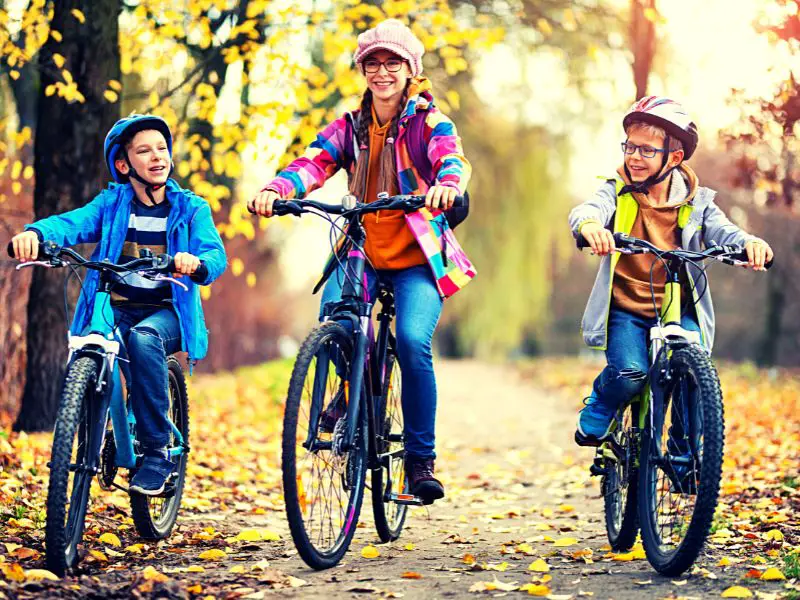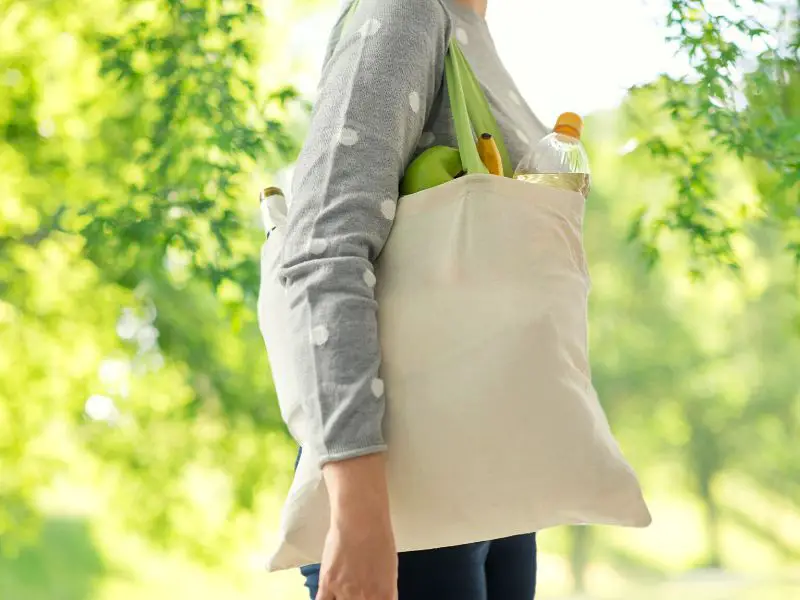Humanity is racing against the clock to combat climate change, and many of us wonder, “Can I really make a difference?”
Much evidence shows that humans are hugely changing the climate. But humans can also change the climate for the better by cutting back on fossil fuel use and carbon emissions. Avoiding the detrimental effects of climate change is not too late. But time is running out.
To answer the question above, I believe, and the reality is, we can. The planet needs us to keep it habitable for future generations. Fortunately, there are several ways to make a difference. If each of us does something — even just one small thing — then collectively, our actions will impact the world around us.
You care about the planet if you are reading this, and I want to help. The environment we live in is beautiful, but unfortunately, it’s getting worse. Now is the time to fix this problem, but first what are the things you can do to save the planet? I have some ideas on how to make a difference. Let’s start!
Believe That You Can Make a Difference
The first thing to do is believe that you can make a difference. There are many ways you can do your part without interfering with your lifestyle. If each of us does just one small thing, collectively, our actions will impact the world around us.
Human activities, particularly those that rely on coal, oil, and natural gas for energy, are having a significant impact on the climate, with potentially catastrophic consequences.
As greenhouse gasses from the combustion of fossil fuels accumulate in the atmosphere, they contribute to global warming. Rising global temperatures have driven severe heat waves, rising sea levels, and more violent storms, making it increasingly difficult to adapt. A new study from the Intergovernmental Panel on Climate Change highlights some severe disruptions already happening and how they put people, the economy, and the environment into severe danger.
Just as humans can opt to drive gas guzzlers instead, they can also act in ways that influence the climate, air quality, and public health for the better.
What We Can Do to Save the Planet
Do We Need to Go Vegan?
Our food accounts for almost a quarter of our carbon footprint, and we need to feed a rising population better while saving our dwindling biodiversity and avoiding an antibiotic crisis. There is no denying that people must minimize their meat (particularly beef and lamb) and dairy intake. When we feed soybeans to cows, we get only around 10% of the protein in their meat. However, this comes at the cost of a significant amount of methane (a potent greenhouse gas) and deforestation.
We don’t necessarily need to go vegan, but changing to a plant-based diet can make a huge impact on our environment. Our changes don’t even have to be done overnight. We simply need to begin chipping away animal products so the food industry alters dramatically over the next decade. And for the most part, this can be our chance to eat more healthily.
Should We Stop Flying?
Here’s an uncomfortable fact: a long-distance flight will generally consume roughly 100 tonnes of gasoline, emitting about four times the amount of CO2. Because of some complicated high-altitude effects, the climate change impact of flying is likely to be double that of burning fuel on the runway.
While short-distance electric aircraft are becoming increasingly viable, there are limitations on the weight you can carry. So yep, flying is generally okay, but too much can increase your carbon footprint significantly.
Can We Shift Our Energy Supply?
Today’s worldwide energy supply is just one-seventh of the energy that the sun provides to the earth. A solar-panel installation covering 228 square miles in a sunny section of the planet may provide enough electricity to power the whole world’s energy needs. Yes, solar energy can power the entire world, however, the cost nor the resource use is too expensive. There are also concerns with distribution and storage, but the answers to these problems are also progressing nicely.

Australia receives 200 times more sunlight per person than the United Kingdom, making it the fifth among major countries in terms of sunlight per person (ahead of Bangladesh, Belgium, the Netherlands, and Rwanda). Most countries don’t have a lot of wind or tidal power. The UK, on the other hand, has lots of it. In summary, the shift is technically achievable with a suitable investment and a strong political will.
It is both feasible and necessary to replace our energy source within the current decade to stop climate change and all its consequences.
Could a Green Tax Work?
What about a carbon tax to encourage people to use less and thus help the environment? Economists and policymakers have long considered a carbon tax aimed at reducing emissions of greenhouse gasses as a straightforward way to put a price on pollution.
A tax on carbon dioxide seems easy to implement and would definitely impact consumer behavior. But a green tax is a double-edged sword – it affects both the consumer and the economy, making it politically controversial. And most politicians don’t dare to risk their careers over this.
However, a green tax could create a massive pot of funds to finance new green energy infrastructure, assist countries and individuals that don’t have the means to transition to a low-carbon society, and support a wide range of social and environmental projects.
Should We Have Fewer Children?
Twelve billion responsible citizens can coexist peacefully on our planet. But one billion irresponsible people can quickly devastate the place in no time. So it’s not only a matter of sheer numbers; it is also a matter of acceptable social behavior. It takes around 500 Malawians to equal one person’s carbon footprint in the United Kingdom. Each new birth increases the need for everyone else to exercise a little more caution.
So, is having kids a terrible thing? No. Is it irresponsible to have a large family? Perhaps also not. Is it important what kind of lifestyle the new generations have? Absolutely.
23 Things You Can Do to Save the Planet as an Individual
Saving the planet does not entail great hardship. The things you need to start doing are simple and will make a difference if done in sufficient numbers.
1. Ride your bicycle where possible. If you live near work, use a bike instead of driving. If your kids go to school nearby, send them there by bike, then use the time on the way back for yourself – it is good for you and good for everyone else.

2. Buy less stuff to reduce energy usage and produce less CO2. Don’t throw away stuff that you think can still be repaired.
3. If you have to drive, park your car sensibly (not always in the garage) and turn the engine off when you leave it for a while.
4. More and more cities worldwide are going car-free to reduce pollution and congestion and make better use of public space.
5. Plant trees – preferably native varieties, as they help maintain biodiversity – or put up a green wall in a sunny position to soak up CO2 on your terrace or balcony.

6. Use energy-efficient light bulbs in your house or install solar panels on your roof.
7. Don’t waste tissues or napkins.
8. Buy less meat and more local produce (this will also help the economy).
9. Don’t waste energy heating your home if it is already hot outside or if you are away on holiday.
10. Don’t assume that you have to buy things from a particular country just because that is what you usually do – sometimes it is cheaper to purchase items directly from the manufacturer or elsewhere in your own country (you may actually find yourself buying better quality products if they are not imported).
11. If your electronic devices stop working properly- even if it is new – repair it rather than replace it; this saves energy and materials every time.
12. Eat less meat and more fruit, vegetables, whole grains, and nuts.
13. Eat less sugar and more vegetables.
14. Carry your mug when out and drink water or juice from home rather than buying juice drinks that are much more expensive; this also reduces the amount of plastic in the oceans.
15. Take your lunch to work rather than dining in a restaurant.
16. Shop in reusable cloth bags and keep some extra on hand to give away. Some supermarkets, including Waitrose and the Co-operative, offer compostable bags in addition to reusable cloth bags.

17. Take public transport, bicycle, or even walk instead of your car – it is much more sustainable, cheaper, and better for you.
18. When buying food, try to buy local produce as it tends to be fresher, healthier, and cheaper (and boosts the local economy).
19. Help others go green by teaching them about some of the things you have learned!
20. Before buying anything, think about whether you have already got something just like it at home. If yes, why not reuse it?
21. Buy less and consume less – especially if it’s disposable, like a shopping bag or even wipes. It is just another way to reduce the amount of waste we produce in our society.
22. Find local green groups in your area and get involved; if there is not one, start one!
23. Work for a green company. There are many opportunities available for volunteers, or you can work for a company making a difference in the environment.
Author’s Note
Remember, the most crucial step on how you can save the planet begins in believing that you can make a change no matter how small! If you are not doing something, you are doing nothing. You are the main one who can make this a better world.
We hope you learned something about doing the right thing for the planet and for the next generation. We hope you will remain healthy, live a long time, and make more money, so you have more money to give to charity or do some of the many other things we have not mentioned here. We hope you found this helpful guide. If you have questions about saving the planet or anything else regarding this subject, please leave a comment, and we will help if we can. Thanks!

